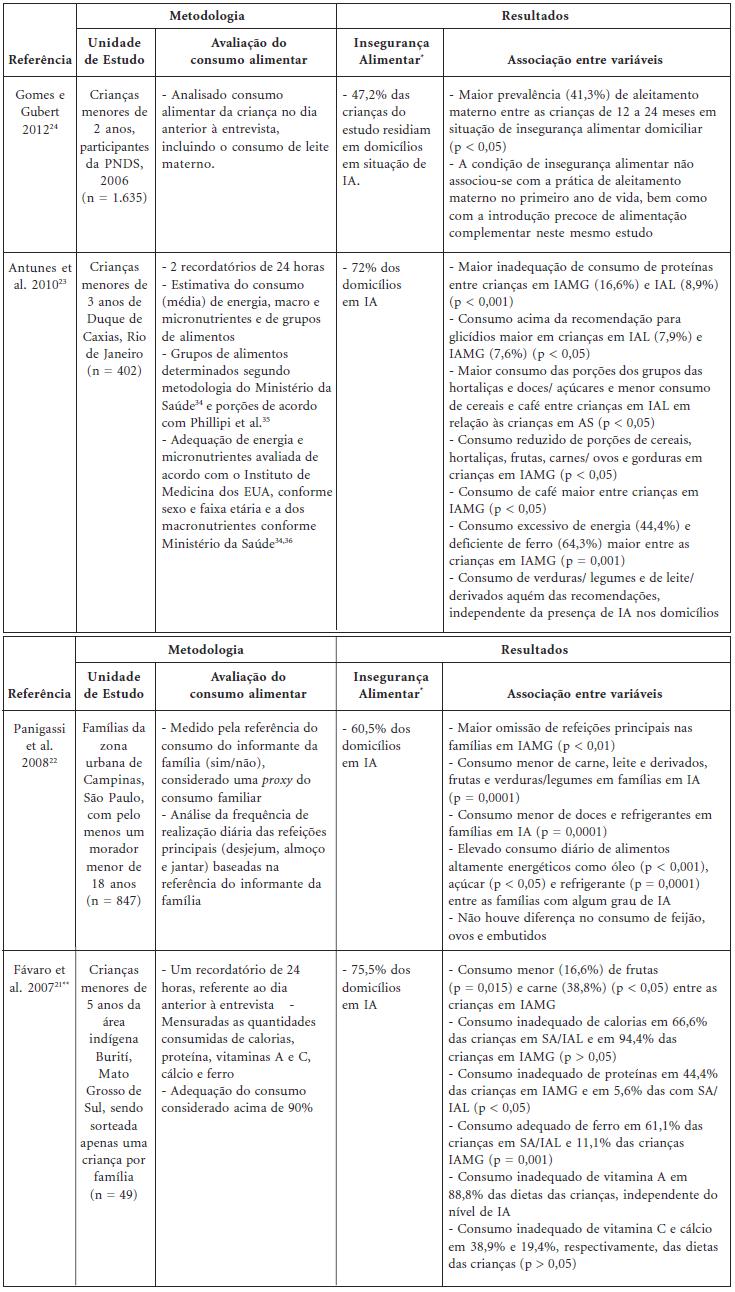The scope of this systematic review was to relate food insecurity, detected using the Brazilian Food Insecurity Scale (EBIA), with anthropometric, dietary and social indicators. The search was conducted in electronic databases (ScieLO, LILACS, MEDLINE), with a selection of studies by titles and abstracts, and later full reading. Studies identified in bibliographic references were included. Of the 215 reviewed, 15 fulfilled inclusion criteria (association between insecurity and anthropometric, dietary or social indicators, detected by the EBIA), whereby three had more than one variable of interest. A relationship was observed between food insecurity and height/age and weight/age of child indices, as well as obesity in women. Lower consumption of regulating, tissue-building food products and iron, and higher carbohydrate intake are associated with food insecurity. There was a relationship between social indicators, such as lower income and education, lack of employment and basic sanitation. The EBIA was associated in some studies with nutritional and social indicators, but should be used in conjunction with other tools in order to cover the multiple dimensions of food and nutrition security.
Food and nutrition security; Nutritional status; Food consumption; Social indicators




